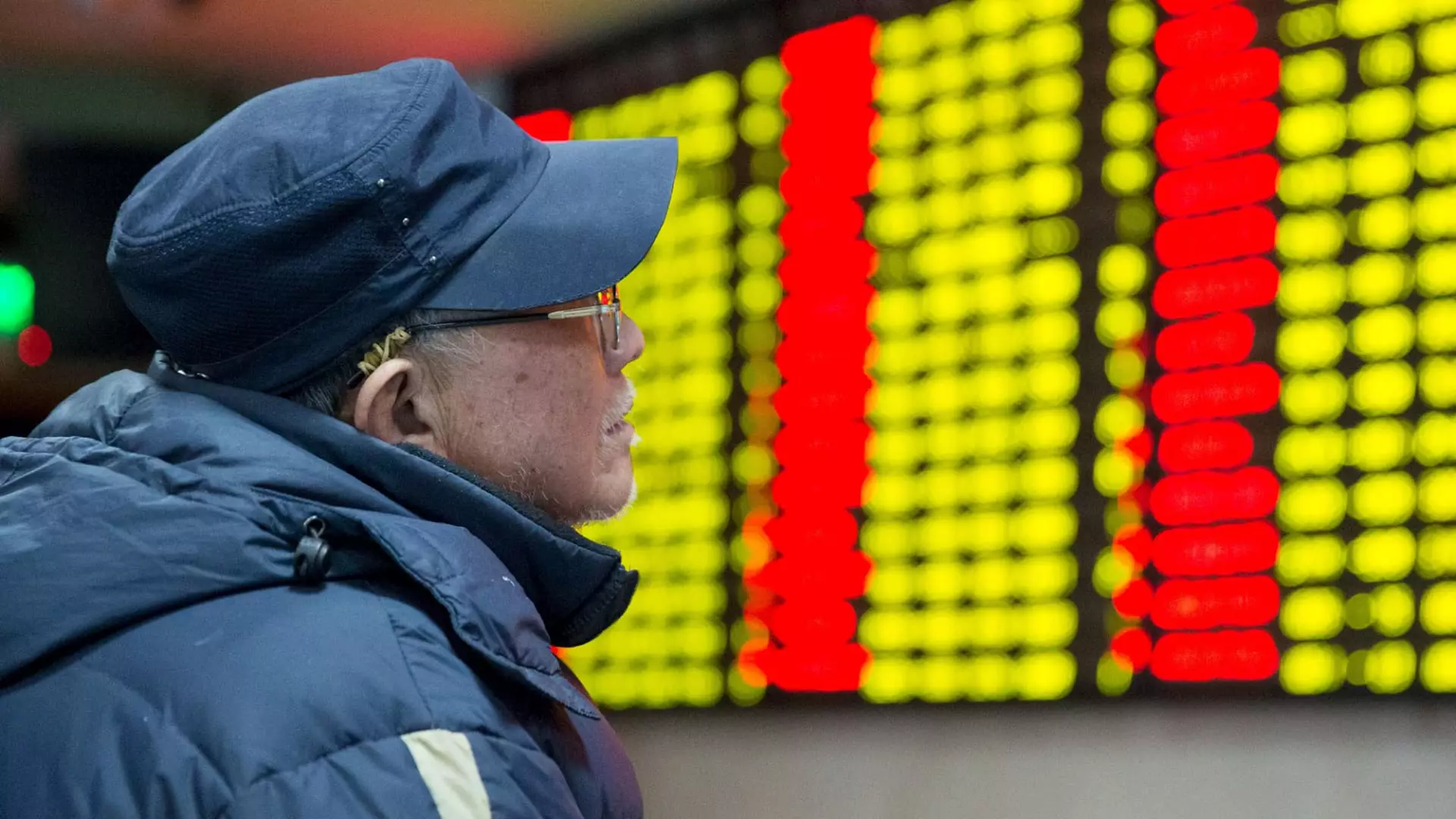China’s financial landscape has been undergoing a remarkable transformation recently, prompting hedge funds and market strategists to reconsider their strategies. The sudden resurgence of the CSI 300 index, which encompasses a variety of stocks traded in Shanghai and Shenzhen, saw an impressive surge of over 15% in just one week—the most significant weekly rise since 2008. This dramatic turnaround comes on the heels of a series of governmental measures aimed at stimulating the economy, which had previously left many investors skeptical and hesitant. Earlier this year, the index had plummeted to nearly six-year lows, reflecting widespread concern about the stability and future growth potential of Chinese companies.
The stark contrast between the recent rally and earlier downturns raises critical questions about market sentiment and investor behavior. According to a report from JPMorgan, led by chief China equity strategist Wendy Liu, there is significant potential for quality businesses to recover well before the overall index marks its lowest point. This insight indicates a pivotal moment in which picking undervalued stocks—those trading at a discount—could yield profitable returns as the market stabilizes.
In the midst of this fluctuating atmosphere, investment strategists have begun to spotlight several companies that may experience near-term gains. Notable among these are Tsingtao, a well-known beer producer listed in Shanghai, Miniso, a U.S.-traded retailer, and Zhejiang Dingli, a machinery manufacturer trading in Shanghai. The collective enthusiasm among analysts suggests that investors should adopt a selective approach, prioritizing sound businesses that are currently undervalued in the market.
Bernstein analysts have also highlighted specific stocks that are poised to benefit from a rebound in consumer sentiment and domestic demand. Companies such as Tal Education, which operates after-school tutoring services in the U.S., and Seres, an automotive manufacturer specializing in electric vehicles (EVs) in collaboration with Huawei, have been identified as having robust potential for six-month earnings growth. Such targeted investments can play a crucial role in reshaping investor confidence in the wake of the market’s recent fluctuations.
As discussions within financial circles evolve, they illustrate a broader change in sentiment towards Chinese equities. The recent policy announcements from the People’s Bank of China (PBOC), particularly the governor’s commitment to reducing interest rates, have prompted many to reassess their positions. This was further reinforced when President Xi Jinping convened a high-level meeting aimed at addressing the challenges facing the real estate sector and called for stronger economic measures.
Billionaire hedge fund manager David Tepper has been particularly vocal about his optimism regarding Chinese stocks, dismissing potential risks from rising U.S. tariffs in the context of more favorable internal policies originating in Beijing. Tepper argues that the lower price-to-earnings ratios of Chinese companies, combined with double-digit growth projections, present a compelling opportunity compared to their U.S. counterparts.
The interest among institutional investors is gradually on the rise, as indicated by the allocation of global mutual funds, which recently reached 5.1% of their portfolios dedicated to Chinese equities—the lowest in a decade. Yet, there’s been a notable rebound with hedge fund allocation increasing significantly within a very short time frame. This sentiment shift has prompted increased trading activity among short-term traders who have aggressively bought into Chinese stocks for eight consecutive days.
Despite this positivity, caution remains in the air. Historical data reveals that investor confidence in the Chinese market has been heavily influenced by governmental policies, resulting in considerable volatility. Many investors are closely monitoring the long-term implications of regulatory changes and how they may impact growth trajectories moving forward.
As retail investors continue to dominate trading in A-shares, the upcoming holiday period in China poses additional uncertainty regarding short-term market performance. Strategies focusing on market recovery often hinge on government policy stabilizing and improving economic conditions. The decision by the PBOC to facilitate stock market investments through collateral arrangements for institutional loans is one indicative sign that the government is keen on facilitating a smoother recovery process.
While the recent surge in stock prices may present an enticing opportunity for investors, it is important to recognize the dynamic nature of the market. The coming months will likely prove critical as stakeholders navigate the delicate balance between optimism and caution in a landscape still shaped by underlying economic challenges. As the dust settles, continued vigilance and strategic investment will be paramount for those exploring the potential resurgence of China’s flourishing market.

